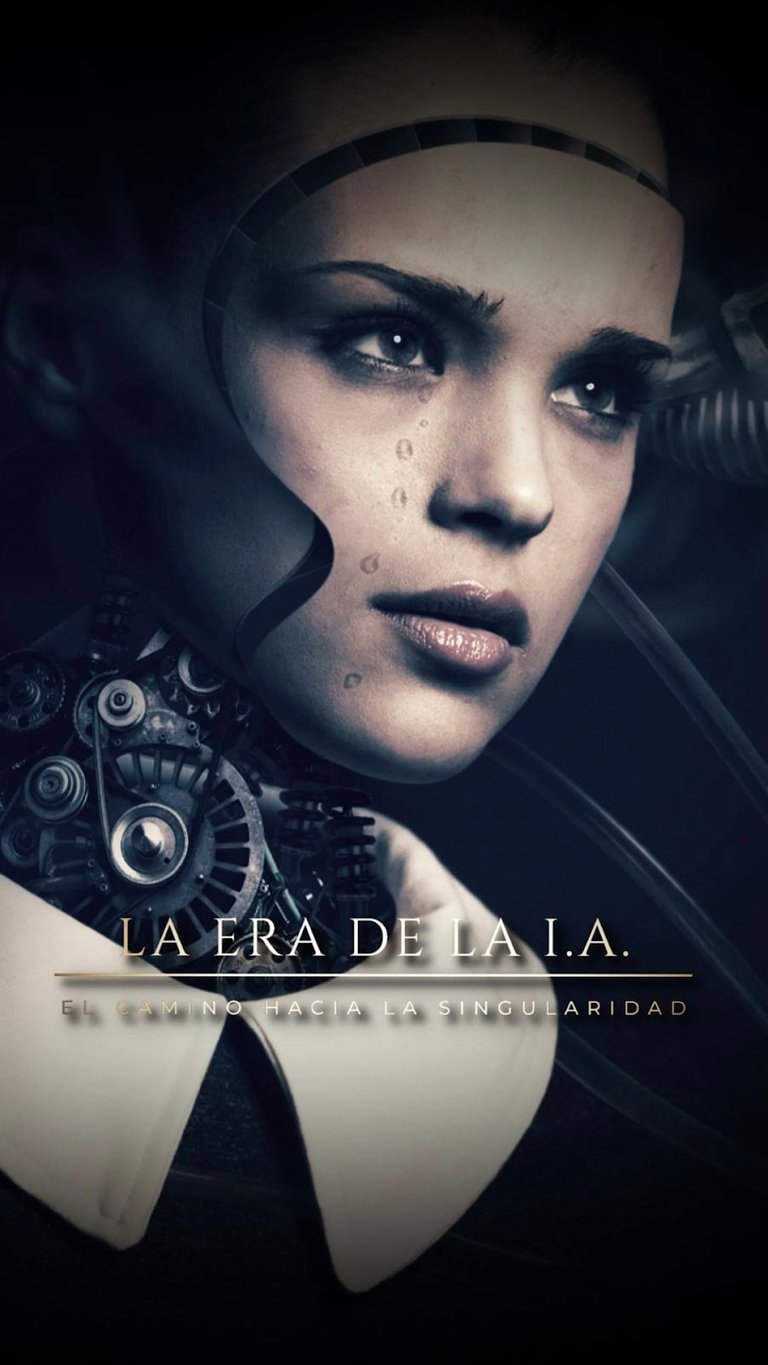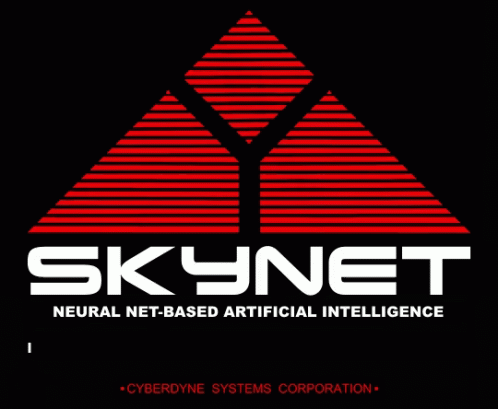Artificial Intelligence: Evil Eye or Technological Revolution In The 21st Century? [ENG/ESP]


Since its inception, Artificial Intelligence has been a field of interest for many scientists and engineers. The idea of having machines capable of learning and performing tasks that previously could only be done by humans has been the subject of much research and development. But why do we need AI, and what happened to bring this technology into being?
Finding solutions to complex problems is one of the reasons why AI has become so popular. From identifying patterns in large amounts of data to intelligently automating processes, AI has proven to be a valuable tool for handling and processing information more efficiently and accurately than could be done manually.
Desde sus inicios, la Inteligencia Artificial ha sido un campo de interés para muchos científicos e ingenieros. La idea de contar con máquinas capaces de aprender y realizar tareas que antes solo podían ser realizadas por seres humanos, ha sido motivo de mucha investigación y desarrollo. Pero, ¿por qué necesitamos la IA? ¿Qué sucedió para que surgiera esta tecnología?
La búsqueda de soluciones a problemas complejos es una de las razones por las cuales la IA se ha popularizado. Desde la identificación de patrones en grandes cantidades de datos hasta la automatización inteligente de procesos, la IA ha demostrado ser una herramienta valiosa para el tratamiento y procesamiento de información de una manera más eficiente y precisa de lo que se podría hacer manualmente.

In addition, the impact of AI has also extended to the social and ethical realm. Both the benefits and potential risks of AI have been widely discussed around the world. One of the most important fields is the use of artificial intelligence systems in decision-making. It has been argued that decision-making based on AI-driven algorithmic systems is susceptible to errors, which can have serious consequences.
In terms of security, there are fears that AI could be used to develop autonomous weapons, which has led the UN to call for a global controversy to limit the development of such weapons. Meanwhile, ethical debates around AI arise when decisions are made by artificial intelligence systems rather than humans.
Además, el impacto de la IA también se ha extendido al ámbito social y ético. Tanto los beneficios como los posibles riesgos de la IA han sido muy discutidos en todo el mundo. Uno de los campos más importantes es el uso de sistemas de inteligencia artificial en la toma de decisiones. Se ha argumentado que la toma de decisiones basada en sistemas de algoritmos impulsado por la IA es susceptible a errores, lo que puede tener graves consecuencias.
En términos de seguridad, se teme que la IA pueda ser utilizada para desarrollar armas autónomas, lo que ha llevado a la ONU a pedir una controversia global para limitar el desarrollo de esas armas. Mientras tanto, los debates éticos en torno a la IA surgen cuando las decisiones son tomadas por sistemas de inteligencia artificial y no por humanos.

With its ability to learn and improve over time, some fear that AI may eventually surpass humans, which has led to a number of concerns across society. To address these risks, the European Union has created laws and regulations that limit the amount of data that can be used to train artificial intelligence systems to avoid bias that may arise from it.
Society's fear of AI lies in the fear of ignorance. Instead of seeing AI as a tool that can improve our lives, society sees it as a threat to our economic and social stability. Fears of job losses due to automation are particularly relevant. There is a real and valid concern that increased use of AI in production and manufacturing may result in a decrease in job opportunities for human workers and a possible transfer of wealth to the owners of the means of production.
Con su capacidad para aprender y mejorar con el tiempo, algunos temen que la IA eventualmente pueda superar al ser humano, lo que ha llevado a una serie de preocupaciones en toda la sociedad. Para abordar estos riesgos, la Unión Europea ha creado leyes y regulaciones que limitan la cantidad de datos que se pueden utilizar para entrenar sistemas de inteligencia artificial para evitar el sesgo que pueda surgir a partir de ellos.
El temor de la sociedad sobre la IA radica en el miedo al desconocimiento. En lugar de ver la IA como una herramienta que puede mejorar nuestra vida, la sociedad la ve como una amenaza a nuestra estabilidad económica y social. Los temores de la pérdida de empleos debido a la automatización son particularmente relevantes. Existe una preocupación real y válida de que un mayor uso de la IA en la producción y la manufactura puede resultar en una disminución en las oportunidades de trabajo para los trabajadores humanos y en una posible transferencia de la riqueza hacia los propietarios de los medios de producción.

Furthermore, the use of AI-based systems in decision-making has generated controversy about their reliability and ethics. Cases have been reported in which automated systems have made questionable decisions, such as recommending harsher sentences for crimes committed by people of colour. This has led to calls for the introduction of special mechanisms to ensure that AI systems are fair and ethical.
Another major concern with AI is its possible use in warfare. Autonomous weapon systems can act without human intervention, giving them the potential to make deadly decisions. The implementation of such systems raises the ethical and moral issue of human responsibility for the potential loss of life.
Además, el uso de sistemas basados en IA en la toma de decisiones ha generado controversia sobre su fiabilidad y ética. Se han reportado casos en los que los sistemas automatizados han tomado decisiones cuestionables, como al recomendar sentencias más duras para delitos cometidos por personas de color. Esto ha dado lugar a un llamado a la introducción de mecanismos especiales para garantizar que los sistemas de inteligencia artificial sean justos y éticos.
Otra preocupación importante con la IA es su posible uso en la guerra. Los sistemas de armas autónomos pueden actuar sin la intervención humana, lo cual les da el potencial de tomar decisiones mortales. La implementación de tales sistemas plantea el problema ético y moral de la responsabilidad humana en la potencial pérdida de vidas.

I conclude, then, that AI has been an indispensable tool in a number of areas, and has generated fear and concern in society. While the risks of its use are real, deepening our understanding of AI and its ethics can enable it to be used effectively and safely, thereby improving our processes and lives. As technology advances, it is imperative that we address these issues with a strategy that is fair and ethical.
Finally, whether we agree or disagree about technology, what we cannot afford to do is not to investigate and reason for ourselves. Fear cannot outweigh the need to innovate. And as humanity, the latter is precisely what got us out of the technological rut we were in for centuries. We must never forget that AIs are nothing more than a tool; which means, by definition, that they are used by someone else; someone who may or may not use them properly...
Concluyo entonces, que la IA ha sido una herramienta indispensable en varias áreas, y ha generado miedo y preocupación en la sociedad. Aunque los riesgos de su uso son reales, profundizar en la comprensión de la IA y su ética puede permitir que se utilice de manera efectiva y segura, mejorando así nuestros procesos y vida. A medida que la tecnología avanza, es imperativo que abordemos estos problemas con una estrategia que sea justa y ética.
Finalmente, podemos estar o no de acuerdo sobre la tecnología, lo que sí no podemos permitirnos, es no investigar y razonar por nuestros propios medios. El miedo no puede ser mayor a la necesidad de innovar. Y como humanidad, ésto último, es precisamente lo que nos sacó del bache tecnológico en el que estuvimos por siglos. Nunca hay que olvidar que las IA 's no son más que una herramienta; lo que quiere decir, por definición que son usadas por alguien más; alguien que puede o no, emplearla adecuadamente...
0
0
0.000
One thing I am sure of about artificial intelligence is we actually need to strike the balance before it goes out of hand. Artificial intelligence has its advantages and disadvantages. What we must strive for is to make sure the advantage is not more than then disadvantages
I totally agree with you, @biyimi. But let me tell you something else; we can`t satanise his kind of tech, just because we don't fully understand it. Let me give a you a well example, ok? Clonation: we fight, as a society really hard against it... In human beings, but we use it, almost everyday in our common, ordinaries and capitalists lives; fruits, vegetables, animal food, botanics, you name it... So, or we focus on science revolutions, like this one, or either we start learning about what is this new thing. BTW: thank your for your reply.
the fact that humans are making a fuss about AI would always thrive. Humans are very skeptical beings and the movie industry hasn't been of so much help as AIs in movies always turn out bad. Having AI as a part of the world isn't as bad as people paint it to be; it helps to achieve many tasks.
Thanks for your contribution to the STEMsocial community. Feel free to join us on discord to get to know the rest of us!
Please consider delegating to the @stemsocial account (85% of the curation rewards are returned).
You may also include @stemsocial as a beneficiary of the rewards of this post to get a stronger support.